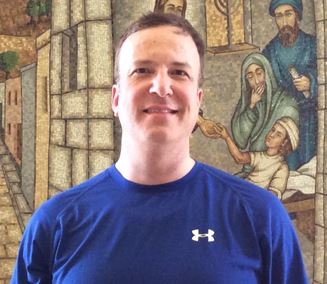
If the events of today’s world offer us anything, it’s the opportunity to reflect and rethink what peace means and reorient our hearts. In this Sunday’s gospel, Jesus sends out the seventy-two disciples to towns and villages, not to change them, but to offer them his peace. In a similar way, Jesus sends us out from Holy Family community to our homes, communities, and world to offer his peace. When Jesus sent the seventy-two, they went without a purse, bag or sandals. This reference is meant to be a metaphor for the baggage we carry, the baggage that continues to trip us up and deny us a heart at peace. It is the baggage of our past experiences, fears and wounds, grudges and resentments, pre-judgments and assumptions about others, old solutions and beliefs, our need to be right or better than the other, and sometimes our desire to play the victim.
This weekend, Jesus asks us to reflect on what peacemeans to us, what does it look like, and how do we attain and keep it? Jesus teaches that a heart at peace is about loving our neighbor as ourselves. It means that the other person, regardless of who she or he is, counts and matters as much as we do. A heart at peace refuses to lump masses of unknown people into lifeless categories such as Republican, Democrat, Conservative, Liberal, Gay or Lesbian, Jewish, Muslim, or Christian, and make them objects to be dealt with or enemies to be defeated. A heart at peace encounters everyone as a person. It looks another in the face and recognizes itself. What do you see when you look in the face of another?What if a heart at peace means being merciful and not judging, refusing to throw the first stone, and taking care of the log in my own eye rather than the speck in the eye of another? What if a heart at peace offers forgiveness, not seven times but seventy times seven? Are we willing to do that?What if a heart at peace means feeding the hungry, giving drink to the thirsty, clothing the naked, and visiting the sick and imprisoned? What if a heart at peace is about loving our enemies, doing good to those who hate us, turning the other cheek, giving our shirt to the one who has taken our coat, and doing to others as we would have them do to us? Before we can ever do that, we must first regard the life, needs and desires of another as important as our own. It means we must refuse to betray ourselves and refuse, “to horrible-ize others.”
All these “what ifs” about peace are not so much prescribing behaviors as they are describing ways of being. Peace does not begin with our behaviors toward each other, but with our way of being toward each other, our seeing each other as human beings created in the image and likeness of God. Our behavior toward one another will be determined by our way of being toward one another. It is a matter of the heart, your heart and my heart. If our hearts are at war, it makes no difference how polite or nice we are to each other. Violence is present. Offering the peace of Christ is more than a friendly handshake, a warm hug, or a “How are you? It’s good to see you.” It’s the recognition of another’s existence and his or her value as a human being, regardless of whether he or she is family, friend, stranger, or enemy.
When Jesus sent out the seventy-two, he did not condition their offers of peace on who the recipients might be, their worthiness, what they had done, or what their response might be. Neither can we condition our offers of peace. Some will receive the peace and others will not. Either way, “the kingdom of God has come near”if our hearts are at peace. The peace of Christ is not defined by the absence of conflict and it is not an ideal to be attained. It is a practice to be lived every moment of every day of our lives.That means practicing peace with our friends and family. It means practicing peace with our enemies. It means practicing peace with the stranger, with those who are different from us, and with those who scare us.
Let us number ourselves among the seventy-two sent to every town and place where Christ himself goes. Let us enter every house first saying, “Peace to this house.”Let us become people with hearts of peace, not injustice. Isn’t that what we want for ourselves? For our children and grandchildren? For our families and friends? For our world? Let us not give the same old answers. Let us not use the same old excuses. Let us not offer the same old solutions. Let us not meet the world with the same old beliefs. The struggle for peace begins, not between me and another, but within myself. Let us consider what a heart at peace might look like. What baggage might you need to leave behind to go into the world fully equipped with a heart at peace? What does peace mean to you? What comes to mind when you think of peace? What does it look like? What shape does it take?

